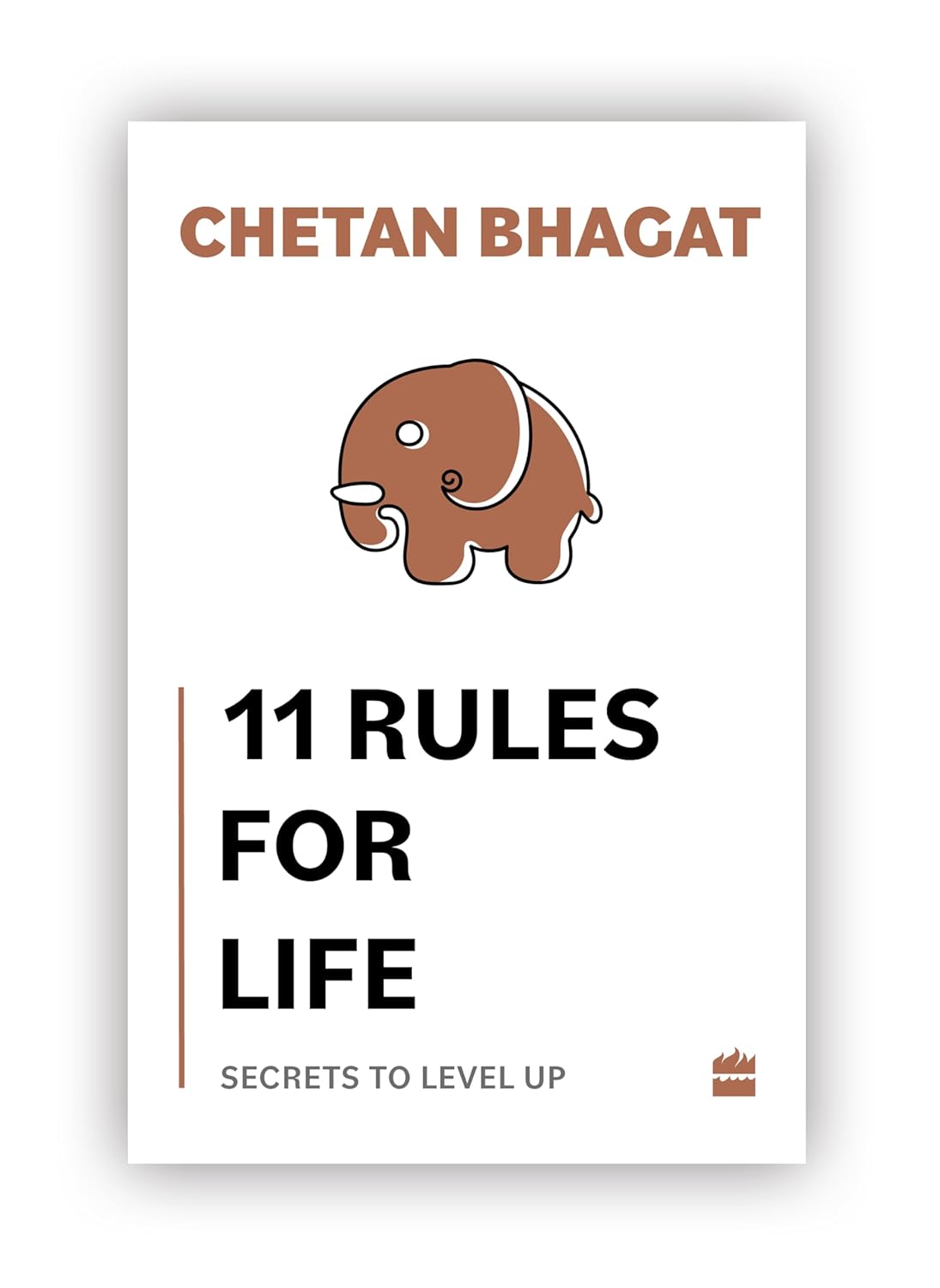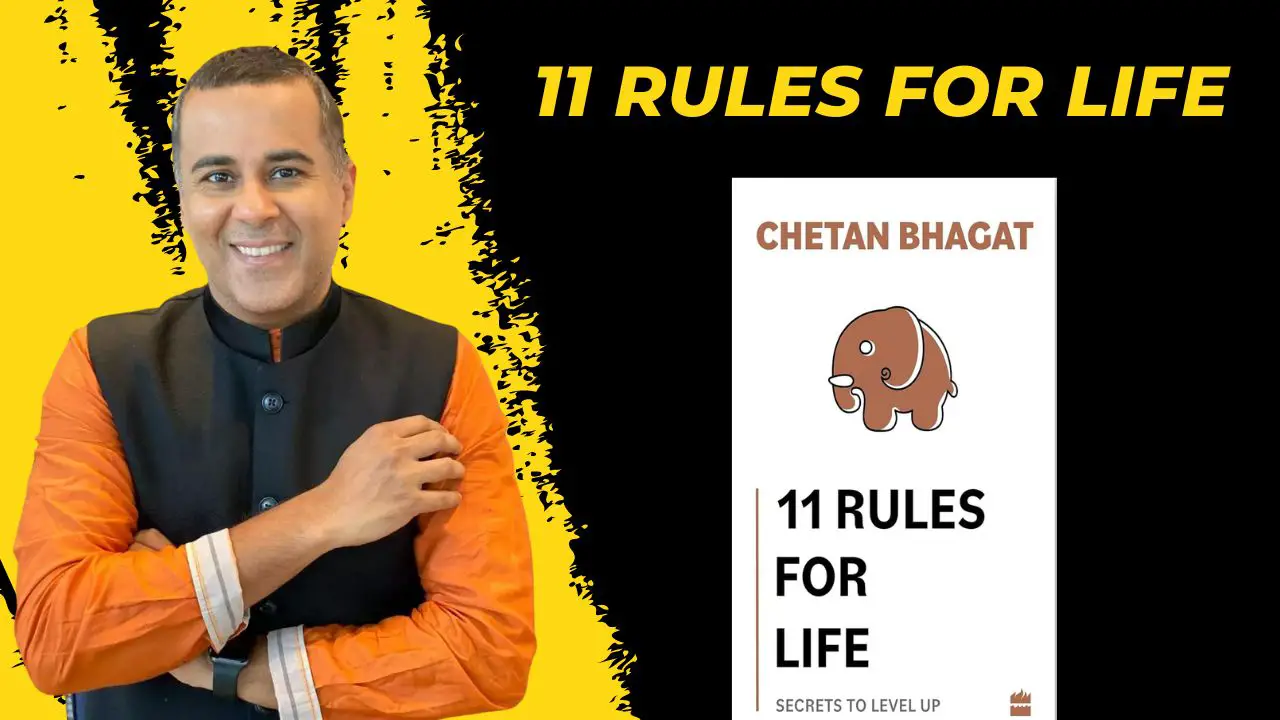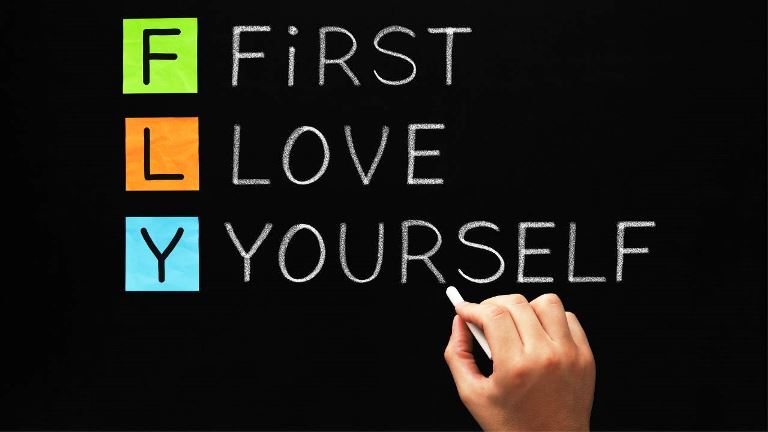Chetan Bhagat’s ’11 Rules For Life’ will give you powerful insights into living a better life. In a world full of complexities, Bhagat offers some straightforward guidance to help us navigate the maze.
We all hit those moments of self-doubt and frustration, wondering why our dreams seem so unreachable.
Join us as we break down these rules, offering practical wisdom and timeless principles to help you live a more fulfilling and successful life.
He provides practical methods for living a fulfilling life in simple ways.
In this blog post, I will review the book’s core principles and share my honest review.

11 Rules For Life: Secrets to Level Up
Author Chetan Bhagat: Website, Twitter, Goodreads
Publication Date: 26 Jan 2024)
Publisher: HarperCollins India
Page Count: 356 pages
Publication Format: Print Book, Kindle, Audiobook
Edition: N/A
Series: N/A
Average Rating On Amazon: 4.6 out of 5 stars
Average Rating On Goodread: 4.4 out of 5 stars
Genres: Self Help, Business, Personal Development, Psychology, Leadership Economics, Finance, Business and Management

- 11 Rules For Life Book Chapter Wise Summary
- The Zomato Delivery Guy And I
- How The World Actually Works
- Rule #1: Never Ignore Your Fitness
- Rule #2: Master Your Emotions
- Rule #3: Put Yourself First
- Rule #4: Master Simple English
- Rule #5: No Cheap Dopamine
- 11 Rules For Life Book Reviews
- 11 Rules For Life Chetan Bhagat PDF
- About The Author Chetan Bhagat
- Early Life and Education
- Writing Career
- Notable Works
11 Rules For Life Book Chapter Wise Summary
The Zomato Delivery Guy And I
My stomach grumbled louder each minute as I waited for my Zomato order, with the delivery guy seemingly stuck in place. Finally, the doorbell rang, and there was a delivery man named Viraj. He apologized profusely for the delay. Despite my initial annoyance, a strange impulse swept me – what if I invited him to join me?
Sitting down to eat, I offered Viraj a seat and a share of my meal. He opened up about his recent breakup and life struggles as we ate. His story depicted financial hardship, unfulfilled aspirations, and heartbreak. Despite his despair, I felt a sense of hope as he shared his dreams.
Our conversation turned to more profound questions about life, fate, and societal expectations. I asked Viraj to think about the bigger factors that affect luck and fate instead of just luck and fate.
I offered to share my thoughts on life with him in the future.
How The World Actually Works
“No one is going to come help you. No one’s coming to save you.”
David Goggins
Society is not a wide-open field where everyone runs freely. It’s a rough mountain, each person clinging to a different slope. Some perch comfortably near the peak, while others struggle to find even a place to stand at the base. They tell us that the world is flat, and that effort alone will bring rewards. But that is just a convenient lie.
The truth is, knowing the mountain exists is the first step to actually climbing it. To understand the different obstacles and unfair winds that impact some people more than others, we need to create a plan for success.
It won’t be a fair journey, but perhaps a wiser one.

Rule #1: Never Ignore Your Fitness
‘Physical Fitness is Not Only One of the Most Important Keys to a Healthy Body, It is the Basis of Dynamic and Creative Intellectual Activity.’
John F. Kennedy
Fitness isn’t just about how you look; it’s about unlocking your full potential for a happy, healthy, and fulfilling life.
It is important to remain healthy and independent for a long time, not just for a day. It helps prevent injuries and age-related health issues, allowing you to live your life fully.
A strong heart, healthy lungs, and flexible muscles make you feel good and help you avoid long-term illnesses, keep you going all day, and recover quickly.
Exercise is a natural stress-buster and mood-booster. It improves sleep and focus and builds the confidence to take on any challenge.
Getting Started? It’s Simpler Than You Think.
- If you hate running, don’t do it! Dancing, swimming, and even gardening count as movement.
- Start with 10-minute walks and gradually add more. Consistency wins over perfection.

Rule #2: Master Your Emotions
“A wise man will be master of his mind, a fool will be its slave.”
Publilius Syrus
All of us have experienced the power of emotions – the surge of anger that makes us say things we regret, the fear that paralyzes us before a big presentation, or the joy that makes life feel worth celebrating.g.
Mastering our emotions isn’t about becoming insensitive to these feelings; it’s about understanding them deeply. Start by recognizing emotions as they come up, figuring out what causes them, and learning healthy ways to control their intensity.
Think of it like learning to drive. We can’t control the traffic or weather, but we can develop skills to navigate safely.
Similarly, we can’t prevent emotions from happening, but we can control how we respond. This is where true mastery begins. Instead of reacting impulsively, we can choose actions that match our beliefs and goals.
The benefits of emotional mastery are huge.
- We make better choices because we don’t get distracted by strong emotions.
- We strengthen our relationships by communicating better during conflicts and building trust by managing our reactions.
- We bounce back faster because we’ve learned how to process difficult emotions without getting overwhelmed.
- It gives us the power to create a more peaceful, resilient life and to handle whatever comes our way.
Keep in mind that mastery is a journey, not a destination. It takes practice and self-awareness.
Rule #3: Put Yourself First
Find yourself first, like yourself first, love yourself FIRST, & friendship & love will naturally find YOU
Mandy Hale
We live in a society that praises selflessness and sacrifice; “Give until it hurts” is a message many of us grew up hearing. But this approach is unsustainable.
Think of an airplane – in an emergency, the rule is to put your oxygen mask on first before helping others. The same principle applies to life. To truly be there for the people we love and make a difference in the world, we must prioritize our well-being.
Putting ourselves first is not about selfishness but creating a solid foundation that allows us to thrive. It involves recognizing our physical, mental, and emotional needs and taking steps to meet them.
This could mean setting boundaries to protect our time and energy, asking for help when needed, or saying “no” to commitments that leave us drained.
At first, it might be uncomfortable to do this, especially if we’re used to taking care of others’ needs before our own. However, as we practice self-prioritization, we discover a surprising truth: When replenishing our reserves, we have more to give.
We are more present and engaged with our families, partners, and friends. Our work productivity and creativity improve.
Even small acts of self-care – a relaxing bath, a favorite hobby, or simply some quiet time – create a ripple effect of well-being that extends outward.

Rule #4: Master Simple English
“Language is power, in ways more literal than most people think. When we speak, we exercise the power of language to transform reality.”
Julie Sedivy
Chetan Bhagat, a renowned Indian writer, talks about how his decision to write in English has shaped his success and identity. He wonders if he would have been as popular and influential if he had written in his language, Hindi.
He acknowledges that his fluency in English has given him access to elite opportunities, such as prestigious conferences, a coveted column in The Times of India, and even recognition from Time magazine.
Know More: 50 Best Self Help Books Of All Time
Rule #5: No Cheap Dopamine
We get dopamine in the brain when we like something a lot. Well, cell phones stimulate dopamine, too. So, it really is the case that there are some people who are pretty addicted to these devices.
Devra Davis
Dopamine, the brain’s “want more” chemical, is key for motivation. But today’s world is overflowing with cheap dopamine hits – beer, junk food, social media. The catch? Your brain is trained to seek easy pleasures instead of hard-earned ones.
Dopamine isn’t just about feeling good at the moment. It’s the craving for more that drives you to action.
Effortless dopamine teaches your brain that the good stuff comes without work. Why hit the gym when beer feels good too? Why study when video games offer instant gratification?
This messes with your inner reward system. You lose the motivation to pursue difficult but truly fulfilling goals. Like training for a marathon, building a business, or deepening your knowledge.
The pleasure of the moment can poison your future potential. To achieve great things, tie dopamine releases to achieving hard-won goals. That’s when the rewards feel truly wonderful and fuel your drive for even more success.

Don't be a dopamine thief. Make the pleasure come AFTER the effort. You'll build a brain wired for achievement, not just cheap thrills.
- Rule #6: Chase The Hard Things
- Rule #7: Eat The Elephant
- Rule #8: Be The Cockroach
- Rule #9: Learn To Connect
- Rule #10: It’s My fault
- Rule #11: Ear, Save and Invest
I’d love to share the full summary of ’11 Rules For Life by Chatan Bhagat with you! Please let me know in the comments if you’re interested.
Know More: 151 Most Inspirational Quotes On Books And Reading
11 Rules For Life Book Reviews
Chetan Bhagat, a household name in Indian literature, shares personal insights and advice in his latest work, “11 Rules For Life.” Unlike his renowned fiction, this book dives into self-help territory.
People who like Bhagat’s easy-to-understand style will like this one too. It talks about life’s challenges and opportunities in modern India.
The book’s main idea is that society isn’t as simple as we think. Bhagat challenges preconceived notions regarding fairness and success, urging readers to acknowledge the systemic biases and societal obstacles.
His rules teach us how to talk well, care for ourselves, and understand what makes us want to do something. The most touching sections are those that reflect on Bhagat’s decision to write in English and the doors it opened for him.
But some rules need more examples and steps to follow. Although the advice is relatable, it occasionally tends to rely on generalizations.
Overall, 11 Rules for Life excels in its honesty. Bhagat doesn’t promise magic solutions; he offers a framework for understanding a complex world.
11 Rules For Life Chetan Bhagat PDF
“11 Rules for Life” is copyrighted material, and sharing it for free is illegal. If you see offers for a free PDF, be very cautious. These are often scams designed to trick you into downloading malware or giving up personal information.
Good news: There are many safe ways to read without spending money! Here are a few ideas:
- Online Resources
- Book Summaries
- Chetan Bhagat YouTube Video
- Kindle Unlimited/Audible free trial
- Used Bookstores: You might score a cheaper copy to own for good!
About The Author Chetan Bhagat
Chetan Bhagat is a renowned Indian author, columnist, television personality, and motivational speaker. Known for his relatable and contemporary writing style, he’s considered a voice for India’s young generation.
Early Life and Education
- Born in Delhi, India, in 1974.
- Studied mechanical engineering at the Indian Institute of Technology, Delhi (IIT Delhi).
- Completed his MBA at the Indian Institute of Management, Ahmedabad (IIM Ahmedabad).
Writing Career
- Bhagat’s novels often explore themes of ambition, societal pressures, and relationships in modern India.
- His writing is known for its humor, wit, and simple language, making his books accessible to a broad audience.
- Several of Bhagat’s best-selling works have been adapted into popular Bollywood films, including “Five Point Someone,” “2 States,” and “3 Idiots.”
Notable Works
- Five Point Someone (2004)
- One Night @ the Call Center (2005)
- The 3 Mistakes of My Life (2008)
- 2 States (2009)
- Revolution 2020 (2011)
- Half Girlfriend (2014)
- One Indian Girl (2016)
- 11 Rules for Life: Secrets to Level Up
